
Jun 07 2022.
views 823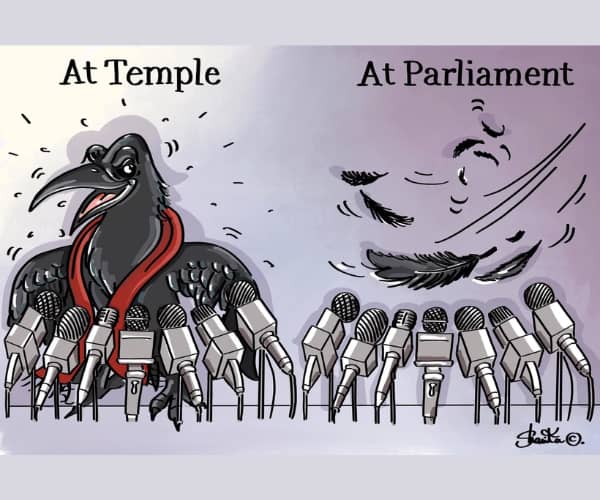
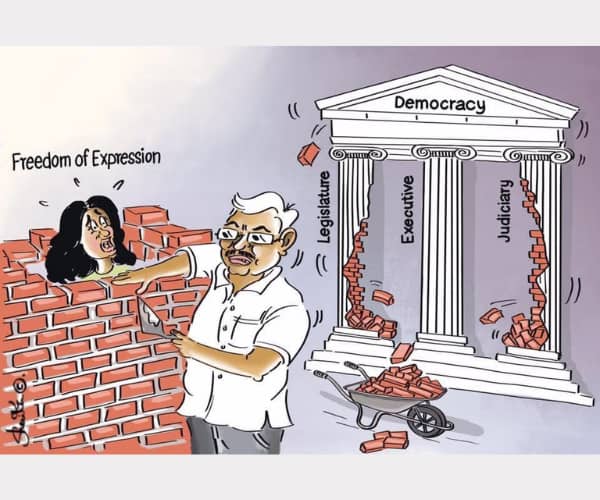
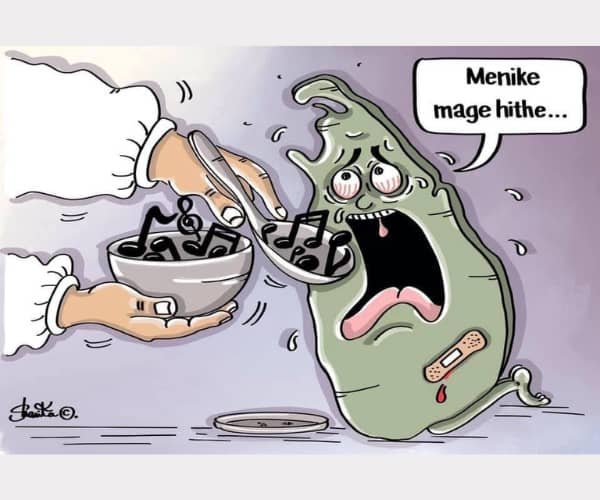
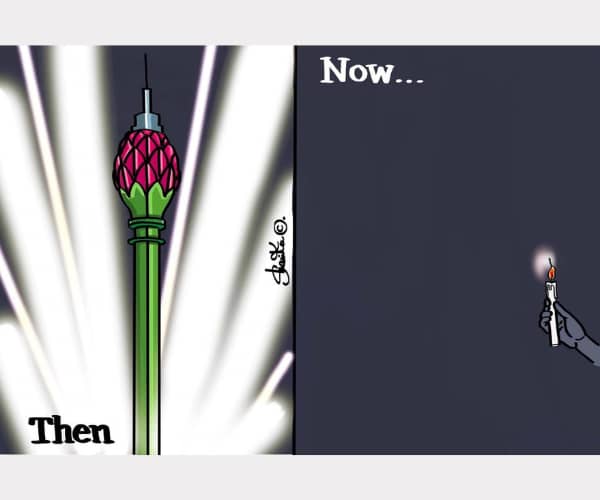
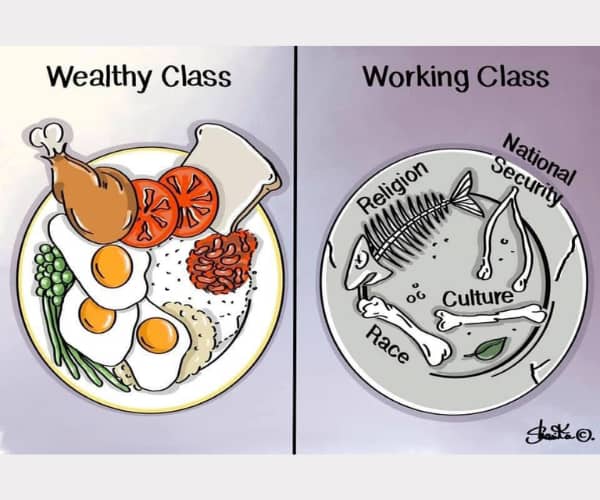
Cartoons are an effective mode of communication. In Sri Lanka, many cartoonists have portrayed corruption, nepotism, and short-sighted decisions taken by successive regimes through satire. Taking her own space in this rather niche industry is one female cartoonist who has portrayed her views about the political culture and social trends in Sri Lanka. Shanika Somatilake, an Engineer by profession currently based in New Zealand believes that cartooning is a powerful tool of communication, especially in societies where freedom of speech and expression are stifled. On this month’s Women-at-Work, Somatilake spoke at length about political cartooning, women in engineering, her thoughts about the ongoing people’s protests in Sri Lanka, and what needs to be done to attract more female cartoonists to the field.

Excerpts :
q Although you have a degree in electrical/electronic engineering you are known as a female cartoonist. What inspired you to draw cartoons?
I started political cartooning a few years ago as a way of expressing my views about the political culture and social trends of Sri Lanka.
q Your specialty area seems to be satirical cartoons. Why are cartoons an effective mode of communication in this day and age?
I have been vocal about the political events and public perceptions of Sri Lanka on social media for a number of years. I found that my art (mainly posted on Facebook and Twitter) spurred more interest and had a bigger impact on people than any writing I did.
I believe a message carried in visual form attracts a wider audience. Cartooning is such a powerful tool of communication, especially in societies where freedom of speech and expression are stifled and political commentary online carries grave consequences. Cartoons can convey a complex situation in the most subtle or humourous way, but at the same time, send a crucial point across.
q Many of your cartoons have been critical of the incumbent regime. How has the response been from your followers/non-followers?
I started political cartooning when the previous government was in power and have been drawing ever since. My work has been published in Sri Lanka in the local print media and online. The feedback for my cartoons has been interesting over the years. My cartoons revolve around topics such as corruption, justice, nepotism, misappropriation of tax money, crime, political impunity, racism, and discrimination so I find that those who are staunch advocates of the incumbent government find them to be rather offensive while those who vehemently stand for a better Sri Lanka find them entertaining and informative. Over the years, my cartooning has evolved and I’ve developed a style of my own.
q Let’s talk about engineering and female participation. As a largely male-dominated field, how has engineering evolved to accommodate females and their ideas?
It’s always been a challenge for women in engineering. Times may have changed and we see a lot of women in the innovation and creative aspects of engineering but even in countries like New Zealand, the diversity and equity within the industry are areas that still need much improvement. Many are still hired as a token to give the appearance of a diversified and inclusive industry. I think there are many opportunities for women to get into engineering here in New Zealand, but one of the biggest issues is how women can be retained within the engineering field at the senior leadership level.
q What is your contribution to the field of engineering?
My engineering discipline is electrical building services. I have been in engineering design and consultancy for over a decade working and leading projects in the NZ dairy industry, high rise commercial fit-outs, and education. For the past couple of years, I think we’ve all had to take a break but I’m looking forward to getting back to the creative aspects of my work.

q What are your thoughts about the ongoing people’s protests in Sri Lanka?
With the dire economic situation and the political instability in Sri Lanka, I believe peaceful protests are a blessing in disguise. This is the first time in the history of Sri Lanka we’ve united this way for a common purpose devoid of ethnicity, religion, or caste. I know the people have had a tough month with what’s happened on the 9th of May, but the determination to change the political landscape of Sri Lanka is still going strong despite the exhaustion, the economic challenges, and the continuous harassment of protesters by the state. I believe if we can keep the momentum going peacefully, the people of Sri Lanka can bring about the political transformation they’ve yearned for for decades.
q There are fewer female cartoonists in Sri Lanka. In your opinion what more needs to be done to attract females to this field?
Being away from Sri Lanka undeniably has its benefits when you’re a critic of Sri Lankan politicians and the political sphere. We already have a multitude of courageous women in theatre/acting and music in Sri Lanka who use satire and humour in their work to bring visibility to issues faced by women in society. There are many exceptional woman painters and artists in Sri Lanka who could broaden their horizons and take on the field of editorial cartooning. We need to foster a generation of courageous individuals and I believe what we’ve seen at Galle Face Gota Go Gama, has set the wheels in motion for more women to visually express themselves regarding the political and social concerns in Sri Lanka.
q What’s the most satisfying and the most challenging part about being a cartoonist?
I believe the most satisfying part of cartooning is the feedback. Cartooning is about engaging and communicating ideas. Successful cartooning to me is when the message behind the cartoon is received loud and clear. Sometimes, a cartoon may have multiple interpretations often with a pun and/or unintended euphemisms and I believe those can be the most satisfying.
q Future aspirations?
I would like to continue to be a part of the shifting political culture in Sri Lanka. I hope that this trend will continue until we can bring about a change at the constitutional level, the governance, law and order and justice as per the wishes of the people.
0 Comments